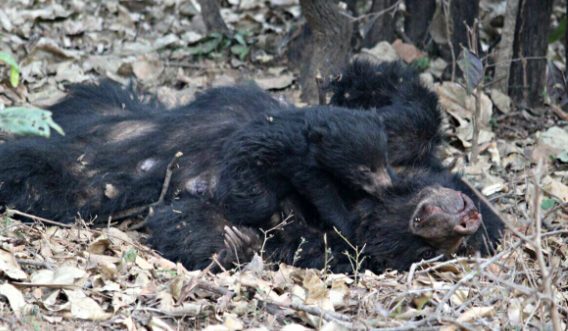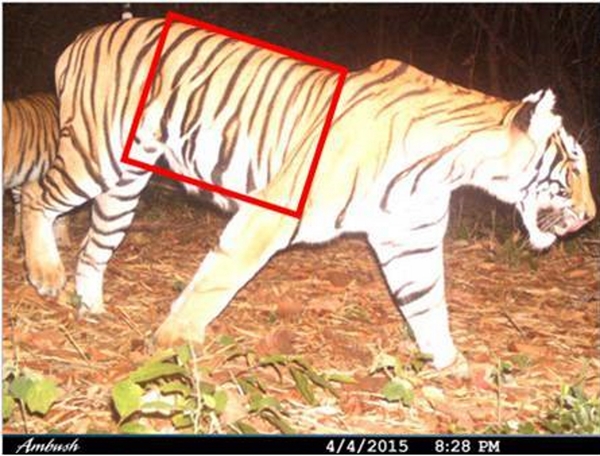Rescuers have found a ten-week-old sloth baby who was clinging to his mother who had been electrocuted by poachers on the periphery of Sanjay-Dubri Tiger Reserve in Madhya Pradesh in India.
The endangered bears were discovered by the Forest Department. The mother was left paralysed by the electrocution and succumbed to the trauma.
The rescuers were surprised to find that the bear cub survived the electrocution. When they found him, he was holding on to his mother, attempting to nurse from her corpse.
Cub transferred to facility
The cub has been transferred to the Agra Bear Rescue Facility in Uttar Pradesh, run by Wildlife SOS.
The male bear cub is under a lot of trauma currently and will require to be under constant medical observation, according to Dr Amol Narwade, Wildlife SOS veterinarian
Six poachers were identified as having intentionally caused the electrocution of the bear by installing a deadly high voltage wire trap.
Sniffer dogs at the site followed their trail up to their doorstep, where they were caught red-handed with poaching tools. The suspects reportedly confessed and have been booked under the Wildlife Protection Act 1972.
Area where sloth electrocuted rich in wildlife
Spread across 467 sq kms of undulating plains and deciduous forests, the Sanjay-Dubri National Park located in Sidhi district of Madhya Pradesh is blessed with a rich population of diverse wildlife species.
It’s believed the female sloth bear followed closely by her tiny ten week old baby set out for the day in their quest for food only to find themselves near an agricultural land located off the reserve.
As anthropogenic pressure on their natural habitat depletes the food available to them in the forest, animals like wild boar, nilgai and sloth bears often venture out to the remote villages bordering the reserve in search of fruits and berries grown by the villagers.
Poachers target area to get wild animals
Seeing this as an means to get easy access to wild animals and target them, a group of poachers had set up high-tension wires along the side of these fields. In her curiosity to explore the new surroundings and her desperation to feed herself to sustain her still milk-dependent cub, the unsuspecting mother bear walked right into this barbaric death trap.

The impact from the high voltage electric wire jolted through her and immediately paralyzed the mother from waist down while the cub miraculously survived despite minor burns on his forehead and back.
When the Forest Department rushed to the location after being alerted by concerned villagers, they were met with a heart-wrenching sight.
The hungry and terrified baby bear clutching his dying mother desperately and struggling to nurse from her. The injured and traumatized cub had to be carefully separated from the mother so that the forest officials could transfer both bears to a treatment center for immediate veterinary care where Wildlife SOS team in nearby Bhopal was called in to try to save the lives of this family. Sadly the female bear’s injuries were so severe that she succumbed the next morning, leaving her traumatized cub orphaned, but in the care of her rescuers.
Electrocution is turning into a preferred method for trapping wild animals across Indian forests.
Wildlife lovers and experts say that while poisoning, shooting, foot-traps (snares) and even explosive-traps are among some of the popular poaching methods in Indian forests, electrocution is on the rise because it mostly goes undetected and animals mostly die quickly.
h/t: Wildlife SOS




